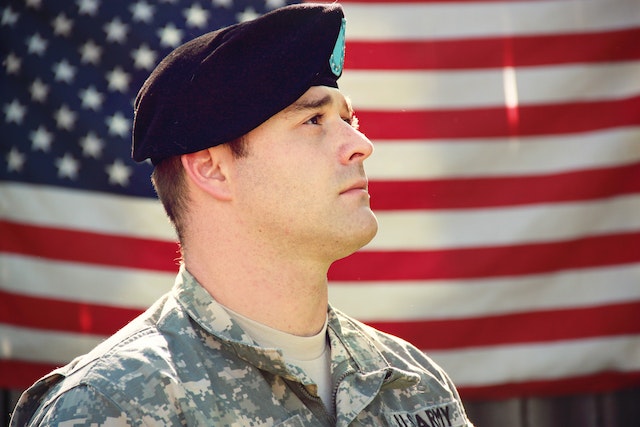Returning home from the military is a huge adjustment both for the veteran and their loved ones. It can be difficult for veterans to readjust to civilian life and reconnect with their loved ones. If your partner is returning home from the military, there are some things you can do to help them transition back into civilian life. Here are five ways you can help:

Via Pexels
Listen To Them:
One of the best things you can do is simply listen to your partner. They may want to talk about their experiences, or they may not. Let them lead the conversation and be there for them when they’re ready to talk. Don’t ask too many questions; you need to understand that your partner has been through a life-changing experience, and they will speak out as they feel comfortable doing so.
Show Patience:
It takes time for veterans to readjust to civilian life. They may not be able to pick up where they left off in their relationship with you. Be patient with them as they transition, and try not to take anything personally. PTSD is a serious condition that can cause a lot of stress for both the sufferer and those around them, so your patience is crucial in their recovery process. Time is the best medicine, and if you are patient enough, eventually, things will start to get better.
Do Some Research:
Learn about what your partner is going through. There are many resources available online that will help you to understand what your partner has been through. This will help you gain a better understanding of what they’re dealing with and how you can help them through it. You may also need to do your research about disability lawyers in your area so that you can be prepared to discuss options with your partner if they decide to seek legal action.
Seek Professional Help If Needed:
Don’t hesitate to seek professional help if you or your partner are struggling emotionally or mentally. There are many excellent counselors and therapists who specialize in helping veterans and their families transition back into civilian life. Additionally, a wide variety of programs and services are offered to help veterans and their families cope with the challenges of post-deployment life. And there are alternative therapies such as EMDR for anxiety and PTSD that are shown to work well for veterans and patients with past trauma. If you or your partner are struggling to readjust to civilian life, don’t hesitate to seek professional help.
Don’t hesitate to seek professional help if you or your partner are struggling emotionally or mentally. There are many excellent counselors and therapists who specialize in helping veterans and their families transition back into civilian life. Additionally, a wide variety of programs and services are offered to help veterans and their families cope with the challenges of post-deployment life. If you or your partner are struggling to readjust to civilian life, don’t hesitate to seek professional help.
Connect With Other Military Families:
Find a support group or connect with other military families in your area who understand what you’re going through. These connections can be invaluable as you help your partner readjust to civilian life. In addition, by connecting with other families, you will have someone to speak to about the challenges and triumphs you’re experiencing.
Conclusion:
Returning home from the military is a big adjustment for both veterans and their loved ones. If your partner is returning home from the military, there are some things you can do to support them as they transition back into civilian life. By following these tips, you can help make the transition a bit easier for both of you.